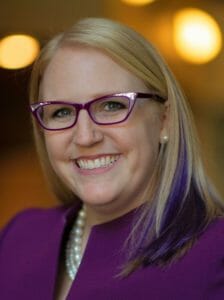
There are levels to every organization, and after seeing the results of this year’s Mood of the Market survey by McKnight’s, we must keep in mind that the respondents were nearly all administrators and directors of nursing (DONs).
While this survey brings great insights into the mindset of our community leaders in those two particular roles, it does NOT equate to the “Mood of the Workforce,” so please don’t mistake this information as how the other 90-plus percent of your staff would respond.
If you haven’t already, definitely read all three of McKnight’s “Mood of the Market” articles that capture highlights of the survey results, as well as listen to their podcast where Kim and I discussed the findings. In addition to those conversations, I wanted to share some more insights and perspectives on what’s happening now as well as what’s coming next.
In general, our leaders like (or even love) what they do. They do not want to quit, but it is clear today that many senior care organizations are pushing those leaders beyond their limits. While 70% of them are in fact “satisfied” with their jobs (a significant decrease from last year’s responses) and 96% find the work “meaningful,” more than half of them did consider quitting in the last three months.
Senior care community leaders we talk to are hitting their breaking points as they’ve been asked to sacrifice too much over the last three years. They tell me their support systems are crumbling beneath them as they’ve worked too many hours and been on call for too long. Most people tell us the “satisfaction” in their role is connected to the mission of their work and the residents they serve, not the organization itself.
One specific question asked was “Do you think you’re asked to do too much at work?” and the answer options were “very much yes,” “generally yes,” “generally no” and “no.” Keep in mind that “generally no” as an answer may not reflect their sentiment today. If someone had been happy with their workload a while back, but it’s been getting tougher over time, chances are they answered that question with “generally no” because they see, and hope that, today’s overloaded situation isn’t permanent.
If this question was written as “Are you being asked to do too much at work at the moment?” I believe the responses would have been a resounding “yes” based on the conversations I have with senior care community leaders regularly. They cannot hang on at the current pace much longer.
So, where should leaders focus moving forward if they want to avoid “The Great Management Walk Out” that is likely to follow The Great Resignation we just experienced with our workforce?
1. Give managers more time: Take workload management seriously if you’re looking for greater organizational sustainability. It’s time to stop overloading department heads. Bring back assistant DON/administrator roles to split up top-level operational duties and create more time for employee engagement. Then, add a Retention Specialist role and/or Retention Task Force that addresses ongoing staffing issues/initiatives, so managers aren’t made to solve the staffing stability issues themselves department by department. Take that burden off the leaders’ plates.
2. Gather more data: It’s detrimental to make assumptions at this point, so ask these same survey questions to your staff for more insights. Dive into your own employee survey data to discover the true sentiments, concerns, and suggestions your staff have today. Text new one-off pulse survey questions to team members regularly to ensure top leaders don’t become disconnected from their front line. Or put yourself in your staff’s shoes for a moment and answer the questions in our latest data collection tool at www.RetentionAudit.com.
3. Focus on culture: If, as a profession, we struggle to compete with other companies on pay, flexibility and industry attractiveness, we must create organizations and leaders that new hires WANT to work for, so they’ll come back tomorrow. These strategies go full circle, because this leads us back to number one as the limiting factor. If most of our managers are overburdened, staff believe their bosses are too busy for them. That creates a culture that lacks support, appreciation, effective communication, mentoring and proper leadership development. Let’s give managers their jobs back so they can support their team members and create a better place to work.
Workforce thought leader Cara Silletto, MBA, CSP, works with organizations of all sizes to reduce unnecessary employee turnover by bridging generational gaps and making managers more effective in their roles. She is the author of the book, Staying Power: Why Your Employees Leave & How to Keep Them Longer.
The opinions expressed in McKnight’s Long-Term Care News guest submissions are the author’s and are not necessarily those of McKnight’s Long-Term Care News or its editors.





